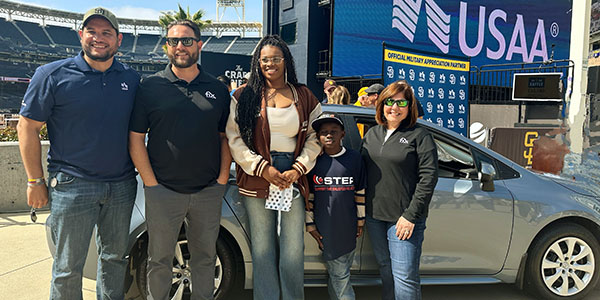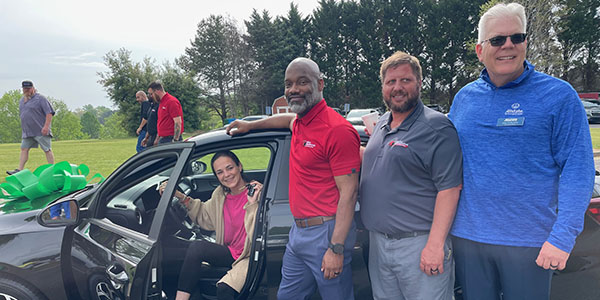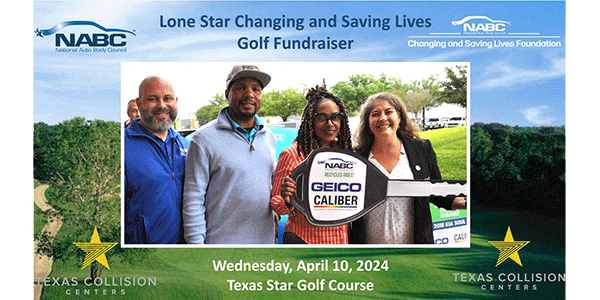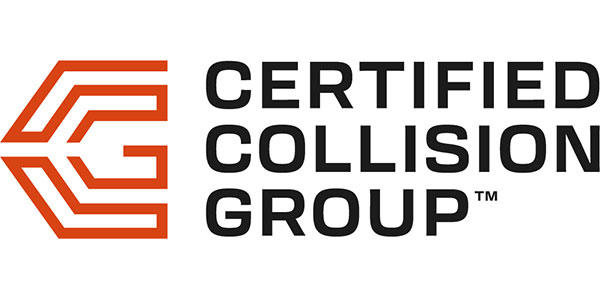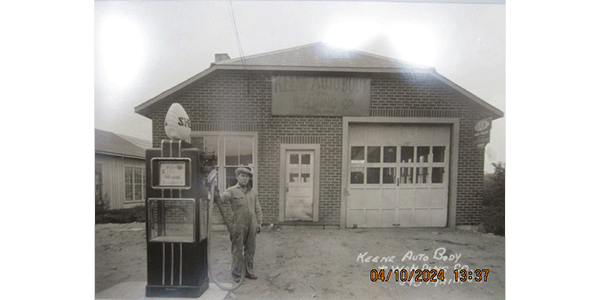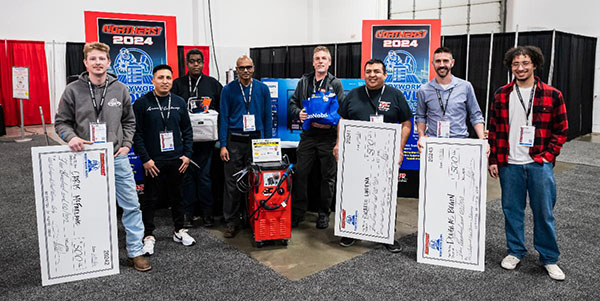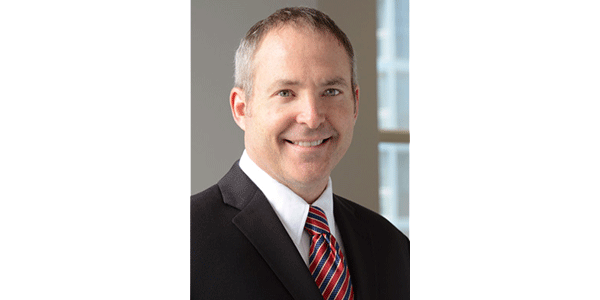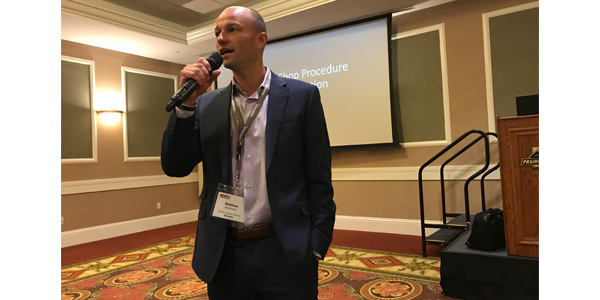
Matthew McDonnell admits that he once was one of those shop owners who would hear some great ideas at a conference and think to himself, “Yeah, that’s not going to work at my place.”
But McDonnell, owner of Big Sky Collision Network in Montana, has learned that it is possible to implement new ideas in his shops, no matter how entrenched the old way of doing things is. In fact, he has found that “your people want to be challenged more than you’d ever believe.”
Still, the notion of picking up new ideas and bringing them back to your shop can be daunting, McDonnell acknowledged. Where do you start making the changes? And how do you get started?
During a Feb. 16 presentation at the Midwest Auto Body Trade Show in Altoona, Iowa, McDonnell detailed a four-step template that he has used to implement new procedures at his shops. The four steps are:
- Build a goal and focus on it.
- Act on the key measures.
- Keep score.
- Accountability and execution
McDonnell said he learned the concepts from “The 4 Disciplines of Execution,” a best-selling business management book by Chris McChesney, Sean Covey and Jim Huling. (The book refers to the steps as “disciplines.”)
“If you really want to get involved in how to do this, I would recommend that you buy that book and read it with your team,” McDonnell said.
Build a Goal
On May 25, 1961, President John F. Kennedy told Congress that the United States should commit itself to putting a man on the moon – and returning him safely to earth – by the end of the decade.
“Now there’s a goal,” McDonnell said.
McDonnell presented a formula for building a goal, which he learned from “The 4 Disciplines of Execution.” In the formula, “X” is the current state, “Y” is the desired state and “by when” is the deadline for reaching the goal. Here’s what President Kennedy’s goal looks like when plugged into the formula:
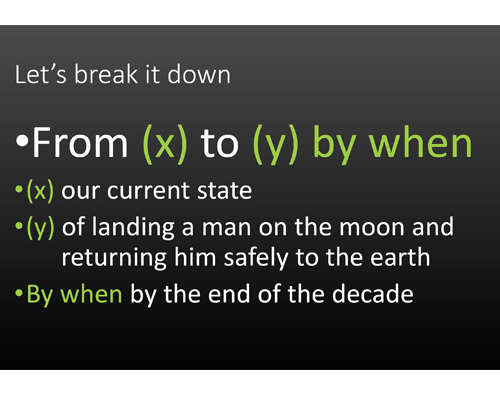
“When you put a date on a dream, it becomes a goal,” McDonnell said, noting that the United States achieved Kennedy’s goal on July 21, 1969.
Some goals are easier than others. For example, investing in new equipment, expanding your staff or acquiring another shop can be achieved with “the stroke of a pen,” McDonnell explained. On the other hand, faster cycle time, improved CSI and higher quality are “behavioral” goals that will require more time to accomplish.
As a sidebar, McDonnell asserted that higher quality “doesn’t start with your techs – it starts with your estimators.”
“You can’t go tell your tech to build the cars better, because they already think they’re the best,” McDonnell said. “Go back and build a better estimate and get them a better repair plan. Then their quality will shoot through the roof.”
Act on Key Measures
According to “The 4 Disciplines of Execution,” Step 2 involves applying “disproportionate energy to the activities that drive your lead measures.”
You can see that concept at work in the way Big Sky has approached its goal of maintaining consistently high CSI (customer satisfaction index) scores.
“We are absolutely crazy about telling our customers that there’s a survey coming, we want them to take it, we want their feedback and if there’s anything we can do to improve, please let us know,” McDonnell said. “If there’s anything that we have done to not deserve a 10 out of 10, let us know right now – we’ll fix it.”
Question 4 on Big Sky’s CSI survey asks if the customer was kept informed during the entire process – and Big Sky employees emphasize that during every interaction with customers.
“If you’re kept informed throughout the repair process and every time I call my customer I say, ‘Hey Mr. Jones, this is Matthew at Big Sky Collision Center, I’m just calling to keep you informed, keep you informed, keep you informed,’ and I call him nine times, when that survey comes out and asks if he was kept informed, he’s going to say, ‘He definitely kept me informed.’”
Big Sky strives for scores in the high 90s on each CSI survey question. When McDonnell noticed scores in the 80s for Question 3 – “Was your vehicle ready when promised?” – the MSO started adding a few extra days to the estimated completion date for each repair.
Now, Big Sky’s CSI score for Question 3 is 100 percent, McDonnell said, “because we always have a couple extra days at the end of the repair.”
Keep Score
Every Big Sky employee knows if the business is achieving its goals or falling short, because the MSO’s seven key performance indicators (KPIs) are displayed on TV monitors – and giant scoreboards – in its shops.
The seven KPIs are:
- Sales
- Length of rental
- Labor hours per day (touch time)
- Customer service (CSI)
- Accounts receivable
- Closing ratio
- Parts-return percentage
Updated daily, each KPI is shaded in red, yellow or green, depending on whether or not Big Sky is hitting its target for the respective KPI. (McDonnell’s advice for sharing KPI data with employees is, “Keep it Fisher-Price simple.”)
Employee bonuses are tied to KPI performance, McDonnell noted.
“Everybody’s looking at [the KPIs] because it matters to them,” he added. “If they do a really good job, they make more money. If they don’t, they don’t get a bonus.”
Accountability and Execution
“The 4 Disciplines of Execution” describes Step 4 as “the discipline that brings the team members all together.”
“Great teams operate with a high level of accountability,” the book says. “Without it, team members go off in all directions with each doing what he/she thinks is most important.”
Perhaps that’s why McDonnell asserted that Big Sky’s mission “has nothing to do with cars.”
“Our mission is to build leaders,” McDonnell said.
The MSO’s standard is “uncompromising integrity,” he added.
“That means when you’re doing something and nobody’s looking, and you take a little shortcut, that ‘uncompromising’ neon sign starts to light up, and it lets you know that even though nobody’s looking, you better do the right thing,” McDonnell explained.
In preparation for his Midwest Auto Body Trade Show session, McDonnell took a picture of a four-door sedan with significant rear body damage. He also took pictures of the parts rack for the vehicle, to show attendees how Big Sky manages the disassembly and mirror-matching processes.
In an effort to reduce Big Sky’s parts-return ratio – one of the seven KPIs – the parts staff began labeling each part to make it easier to mirror-match them. They also began attaching two-dimensional parts diagrams to the rack to ensure that no parts are overlooked, as the pictures show.
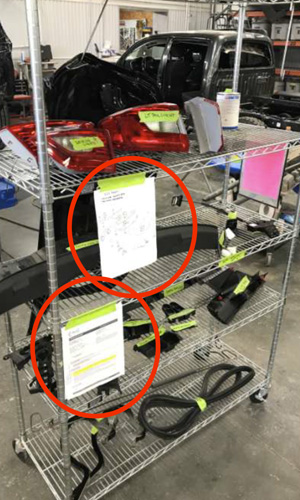
When McDonnell took a closer look at the pictures, though, he was in for a pleasant surprise: The technician who performs pre-repair diagnostic scans took the initiative to tape the vehicle’s scan report to the rack, and highlighted a specific fault code and its corresponding recommendation. The recommendation was to inspect the rearview camera and replace it if it was damaged or malfunctioning.
Because the scan technician called attention to the report, the repair tech inspected the rearview camera, determined that it was damaged, and replaced it.
“When would have been the best time to find that out?” McDonnell asked. “Repair planning – and that’s when we found that out, and we ordered the part. When would have been the worst time to find that out? The day of delivery.”
Without the scan tech’s recommendation, the customer might have driven away in a vehicle with a damaged rearview camera. It’s “scary” to think about what could have happened after that, McDonnell said.
“Maybe that car goes home, and Mrs. Jones is backing out of her driveway and the neighbor kid is riding by on a bike, and she’s used to that camera,” he explained. “You start to rely on this technology long enough and when it doesn’t work … now you have somebody like Todd [Tracy] coming to your facility saying, ‘Hey, we need to talk. Something bad happened.’”
McDonnell insisted that the scan report taped to the parts rack wasn’t staged for his presentation. Said McDonnell: “That’s teamwork right there.”

